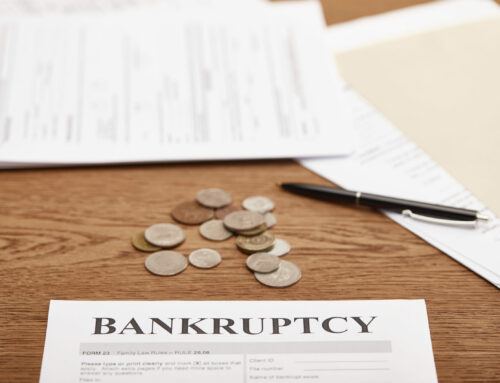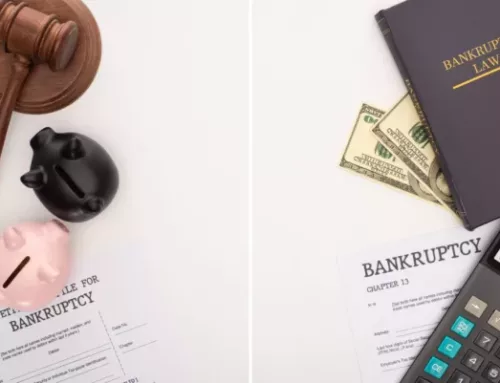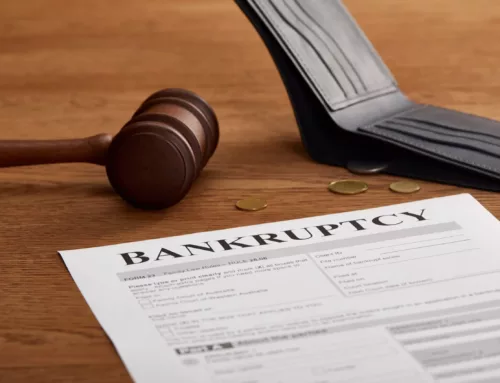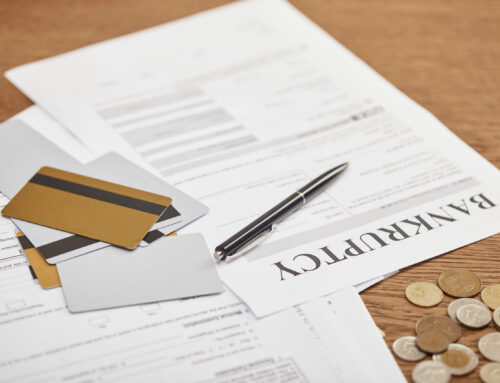Co-signing A Loan
To answer it shortly, you should not co-sign on a loan because the lender will be able to sue you if the loan goes unpaid.
Usually, someone only needs a co-signer if their credit and income are not good enough to get the loan signing alone. If they default on the payments then it can leave you holding the back.
As a bankruptcy lawyer in Jackson, MS I talk to people almost every day who are being pursued for debts that they co-signed on. When you co-sign on a loan you are agreeing to pay the loan if the other person doesn’t.
The biggest misconception people have is that the person listed first is really the one responsible. That is not true. If you co-sign on a loan you are equally responsible for the debt.
Neither party is more responsible for the debt than the other person. It does not matter who is listed first on the loan. It does not matter who is listed first on the title. And it does not matter who drives the car or pays for it.
If you are going to co-sign on debt for someone then you must be prepared to make the monthly payments yourself, regardless of whether you get the benefit of the loan. It is possible that you co-sign on a car loan with someone and they keep using the car without making the payments.
Even if you start making the payments you cannot force them to hand the car over to you. They own the car just as much as you do. They are not stealing from you even if they keep the car. By co-signing, you agreed to pay the loan if they didn’t.
What Does It Mean to Co-sign A Loan?
Co-signed loans are loans with more than one borrower. If two people borrow money together, they are co-signers.
Co-signing is more appropriate when two people will both get the benefit of the loan. For example, a married couple could borrow money to purchase a home that they will live in. As they will both live there it makes sense that they would both be responsible for the loan. However, it is not mandatory for married people to borrow money together.
Banks will sometimes ask for a co-signer if a person does not have very good credit, has a high debt load already or doesn’t have enough income to make the payments. This is the situation that causes the most financial trouble for individuals.
Having a co-signer means that two parties will sign the loan contract. Both of those people will be responsible for paying the money back.
What Happens When You Co-sign on A Loan?
If you co-sign a loan, it will also be reported as one of your debts on your credit report. And it can hurt your score if it makes it look like you are overextended with debt. You likely have a car loan of your own already.
You should always remember that you don’t have a moral duty to co-sign for anyone.
I have seen many parents who are ruined financially because they co-signed for their kid’s car. I’ve seen a lot of people mess up their credit by co-signing for their parents.
I’ve seen people co-sign for friends, boyfriends, girlfriends and even just acquaintances. Co-signing turns into a nightmare very often and you should not do it unless you are prepared to deal with the consequences.
Co-signing Can Hurt Your Credit
 If you co-sign on a loan you cannot be sure that the other person is going to make the payments on time. If your co-borrower doesn’t pay on time, then the payments will be reported as late on your credit.
If you co-sign on a loan you cannot be sure that the other person is going to make the payments on time. If your co-borrower doesn’t pay on time, then the payments will be reported as late on your credit.
I have talked with many clients that didn’t even know that the co-borrower wasn’t making payments. These late payments affected their credit negatively for months and they didn’t even know anything was wrong.
What Can A Bank Do If A Co-signed Loan Isn’t Repaid?
If the loan goes into default, the lender will try to collect the debt from both parties.
This will usually begin with letters and phone calls. Sometimes the lender will send the loan to a debt collection company.
At this stage, people will try to work out payment arrangements or a settlement. If that is unsuccessful, the next step is usually a debt collection lawsuit. It can be scary if someone sues you for debt.
You will have deadlines to either respond or show up in court. The best decision here is to contact an attorney immediately.
Contact our expert bankruptcy lawyer from Jackson, MS to manage your debt collection lawsuit!
There are various defences to debt-collection lawsuits. But if you have co-signed a loan, you will not be able to claim an innocent co-signer defence. Under the law, it will not matter that the other person primarily benefitted from the loan. It will not matter that they promised you that they would pay it.
Under the law, you agreed to pay the loan just as much as they did. If you lose the lawsuit, then the creditor will have a judgement against you. With a judgment, they will be able to garnish wages and/or your bank account.
How Do Co-signed Loans Work in Bankruptcy?
If You File Chapter 7
For a co-signed home or car, if you file a Chapter 7 bankruptcy case, you will need to decide whether to keep the property or surrender it. In case you surrender it, you will no longer owe the debt but your co-signer will still owe it.
But if you keep the car and keep making the payments, the effect on your co-signer will be minimal. This will add a note to your co-signer’s credit report that the debt is “included in bankruptcy”. This will not be the same notation if your co-signer files bankruptcy.
If Your Co-signer Files Chapter 7
If you co-signed on a car and your co-signer files Chapter 7, you will need to contact the lender immediately to make payment arrangements. It is possible that your co-signer intends to keep making the payments but the only way to protect yourself is to be proactive and make sure the payments are made.
If You File Chapter 13
How filing for Chapter 13 bankruptcy affects your co-signer will depend on whether you surrender the property or pay it in the plan. If you surrender the property, the effect will be the same as surrendering the car in Chapter 7.
However, if you pay for the property in the Chapter 13 plan, it gets complicated. Here is the treatment for a few scenarios:
Mortgage
- If you propose to catch up your mortgage inside the Chapter 13 plan, it will hurt your co-signer’s credit but the lender will not be able to try and collect money while the Chapter 13 case is pending. This would have already affected your co-signer’s credit since the mortgage payment is in arrears.
- Secondly, if you propose to pay off your mortgage in the Chapter 13 plan, your co-signer will possibly still owe a balance on the loan at the end of the case. And the lien will not be released until that balance is paid.
- Lastly, if you are up to date on your mortgage prior to filing and propose to pay it directly outside of the plan, it will have the least effect on your co-signer’s credit.
Auto Loans
- If you pay for a car in a Chapter 13 plan it is likely that your co-signer will still owe a balance on the car at the end of your Chapter 13 case. The lender will be stayed from trying to collect from your co-signer while you are in the case. At the end of the case you will not owe any money to the lender, but your co-signer may. If so, the lien will not be released until the balance is paid.
Can You Co-sign While in Chapter 13?
You cannot take out any debt while in Chapter 13 without court permission. It is very unlikely that a bankruptcy judge will give you permission to co-sign on a loan because it is generally considered a very bad financial mistake to do so. Co-signing on a loan is no different than taking out a loan yourself. As such, you need permission from the bankruptcy court prior to taking out debt.
Can You Co-sign While in Chapter 7?
There is nothing that legally prevents you from co-signing on a loan while in Chapter 7, but you should not do it. Chapter 7 will not eliminate the debt that you take out after filing. You will still owe this debt that you co-signed on.
If the loan isn’t paid it can hurt your credit even more. Chapter 7 should be used as an opportunity to get a fresh start and make better financial decisions going forward. If the co-signed loan goes bad you will be ineligible to file another Chapter 7 case for 8 years.
How Many Times Can You Co-sign for A Car?
There is no limit to the number of loans that you can co-sign but it is often a bad financial decision to do it even once, let alone do it multiple times.
Should You Co-sign for A Friend?
It does not make you a bad friend if you refuse to co-sign for a loan. You must protect your finances first.
If you have enough money to help your friend, you should just give them some money. Co-signing on a car can be disastrous to your finances.
Should You Co-sign for Student Loans?
Student loans are probably the worst type of loans to co-sign on because they are non-dischargeable in bankruptcy and they usually carry a high balance.
If you are considering bankruptcy, please call our Jackson, MS bankruptcy lawyer for a free consultation.








Connect with Us